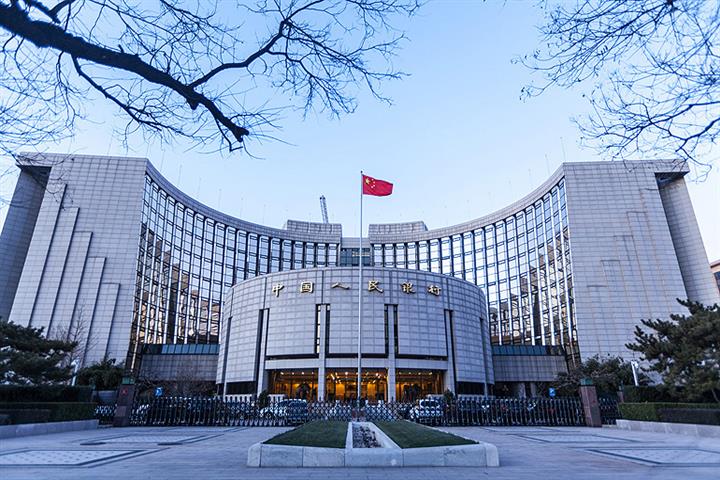 China’s GDP to Grow 5.6% This Year, Inflation to Slow, J.P. Morgan's Zhu Says
China’s GDP to Grow 5.6% This Year, Inflation to Slow, J.P. Morgan's Zhu Says(Yicai Global) Feb. 24 -- China’s gross domestic product is likely to expand by 5.6 percent this year from the year before and inflation will slow resulting in lower interest rates, the chief China economist at US financial services giant J.P. Morgan told Yicai Global in a series of predictions about the Chinese economy.
The consumer price index, which is a gauge of consumer inflation, is likely to slow to under 2 percent in the next few months even though it expanded by 2.1 percent in January, Zhu Haibin said. Inflation may rebound in the second half to reach around 3 percent by the end of the year, but it is nothing to worry about.
The slowdown in inflation will result in an interest rate cut in the next few months, but there are unlikely to be any other rate cuts in 2023, Zhu said.
Once the first quarter economic data is released in April, the People’s Bank of China will probably trim banks’ reserve requirement ratio again, Zhu said. The key economic indicators for the quarter may be on the low side, but this will be due to the high base line in the same period last year.
Although fiscal policy will remain loose in 2023, it will not expand as much as it did last year, Zhu said. The deficit ratio is expected to reach 3 percent and local government’s newly added special bond quotas are set to hit CNY3.9 trillion (USD563 billion).
"Unlike last year, when almost CNY1 trillion (USD144 billion) was spent on Covid-19 prevention, this year there should be almost no such spending,” Zhu said.
Combined with the fact that the size of tax and fee reductions will be much less this year,this could free up a lot of money for the government to spend on other things, and reduce the necessity for a more active fiscal policy this year.
The additional funds could be used on new infrastructure projects, support for strategic industries and consumption boosting measures in the car and home appliance sectors, he said.
This year, consumption will contribute more to GDP than it did in previous years, Zhu said. But there is unlikely to be a post-pandemic "pent-up release of spending."
Consumption should contribute more to the nation’s economic growth this year at 4.1 percentage points compared with 1 percentage point last year, Zhu said. While that from investment will account for 2 percentage points, up from 1.5 percentage points, and returning to pre-pandemic levels.
China’s economy grew about 6 percent on average each year in 2018 and 2019 before Covid-19, Zhu said. In those years, consumption and investment contributed 4 and 2 percentage points to GDP, respectively.
On the other hand, foreign trade’s contribution to economic growth is expected to turn negative this year,to minus 0.5 percentage point from 0.5 percentage point last year, added Zhu.
Spurring Demand
Zhu does not expect the government to issue consumption vouchers and cash to spur economic growth after the pandemic, but he thinks such policies would be helpful, especially this year.
The Chinese government’s stimulation policies usually focus on the production end such as infrastructure investment to indirectly drive up employment and spending, said Zhu.
But weaker overseas demand might not be able to fully digest China’s manufacturing capacity this year, and so it will still be important to issue spending coupons and stimulate domestic consumption, he added.
"Some people say the effects of coupons are short-lived,” Zhu said. But a round of boosting consumption might be just what is needed this year, especially as overseas demand dips. The production end will only see a jump in income once the vouchers start to drive up demand.
Editors: Tang Shihua, Kim Taylor